
Futuristic Inspiration for Speculative Fiction
How would people in the Middle Ages respond to a television? What would someone from the 1700s think of a helicopter? What would a person from the early twentieth century think of a computer, or more specifically, the internet? They would think these things were magical — either illusions or genuine supernatural occurrences. They might…Read More
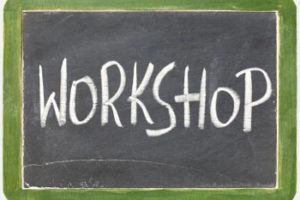
10 Essential Lessons You’ll Learn in a Creative Writing Workshop
When I look back over all my years of formal education, from preschool through college, only a few classes stand out as truly educational in a life-changing way. In sixth grade, we did a section on space, which fascinated me. I retained a lot of what I learned. Later, I took astronomy and learned even…Read More

Why You Should Study Writing
Stephen King said, “If you want to be a writer, you must do two things above all others: read a lot and write a lot.” He’s right. These are the only two things you absolutely must do in order to be a writer. But they aren’t the only things you can or should do. Plenty…Read More
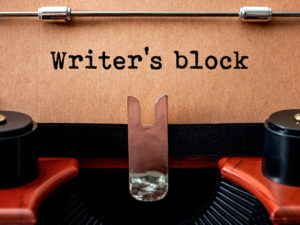
How to Defeat Writer’s Block
Wikipedia defines writer’s block as “a condition, primarily associated with writing as a profession, in which an author loses the ability to produce new work.” However, I have come to believe that in most cases, writer’s block is a symptom, not a condition. Before we can alleviate writer’s block, we have to diagnose it. Writer’s block is…Read More
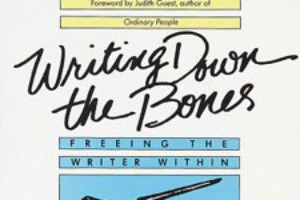
Writing Resources: Natalie Goldberg’s Writing Down the Bones
This post contains affiliate links that earn commissions from qualifying purchases. “I used to think freedom meant doing whatever you want. It means knowing who you are, what you are supposed to be doing on this earth, and then simply doing it.” — Natalie Goldberg, Writing Down the Bones Ah, words of wisdom. I was…Read More
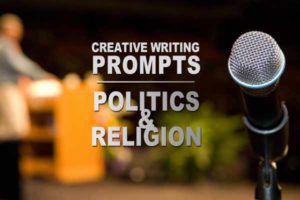
Creative Writing Prompts: Politics and Religion
Today’s post includes a selection of prompts from my book 1200 Creative Writing Prompts. Enjoy! My mom always says, “Don’t ever discuss politics and religion in mixed company.” She has a point: these are taboo subjects that can destroy friendships, rip families apart, and even divide an entire nation. But politics and religion are important…Read More

What is a Story Concept?
Today’s post includes excerpts from What’s the Story? Building Blocks for Fiction Writing, chapter eleven: “Concept, Premise, and Loglines.” Enjoy! Most audiences are first introduced to stories as concepts, premises, or loglines. These are hooks used for pitching and marketing; they draw people’s attention, get them interested in a story, and compel them to buy it….Read More
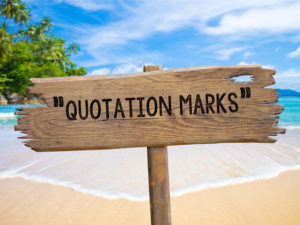
Punctuation Marks: Quotation Marks (in Fiction Writing)
The placement of quotation marks perplexes a lot of people. Do they go inside or outside of other punctuation marks, like periods and commas? Should they be used to set off titles or to emphasize certain words? Are they used for both spoken dialogue and thought dialogue? What about text messages or notes in a novel…Read More

Ten Myths About Creativity
Today I’d like to share an excerpt from my book 10 Core Practices for Better Writing. This excerpt is from “Chapter Nine: Creativity,” which offers insights and tips to help you stay inspired and creative as a writer. The excerpt I’ve chosen presents ten myths about creativity. These are notions about creativity that people assume,…Read More

10 Ways to Learn Writing Skills
For writers, the learning process never ends. There’s always some new skill to acquire, a new writing technique to develop, a new tool we can use. We strive to master basic writing skills (grammar, spelling, punctuation, sentence structure, etc.), and learn our form (fiction, nonfiction, or poetry) and genre (romance, suspense, fantasy, etc.). Storytellers, for example, must learn…Read More



